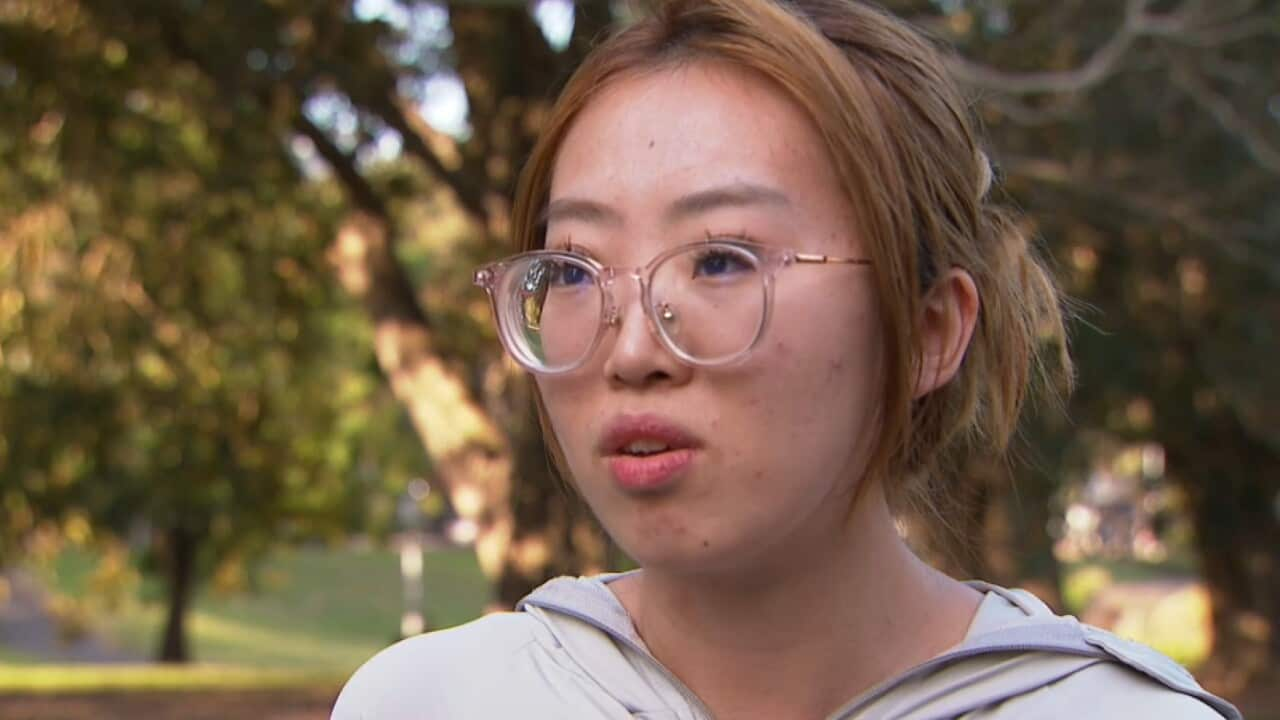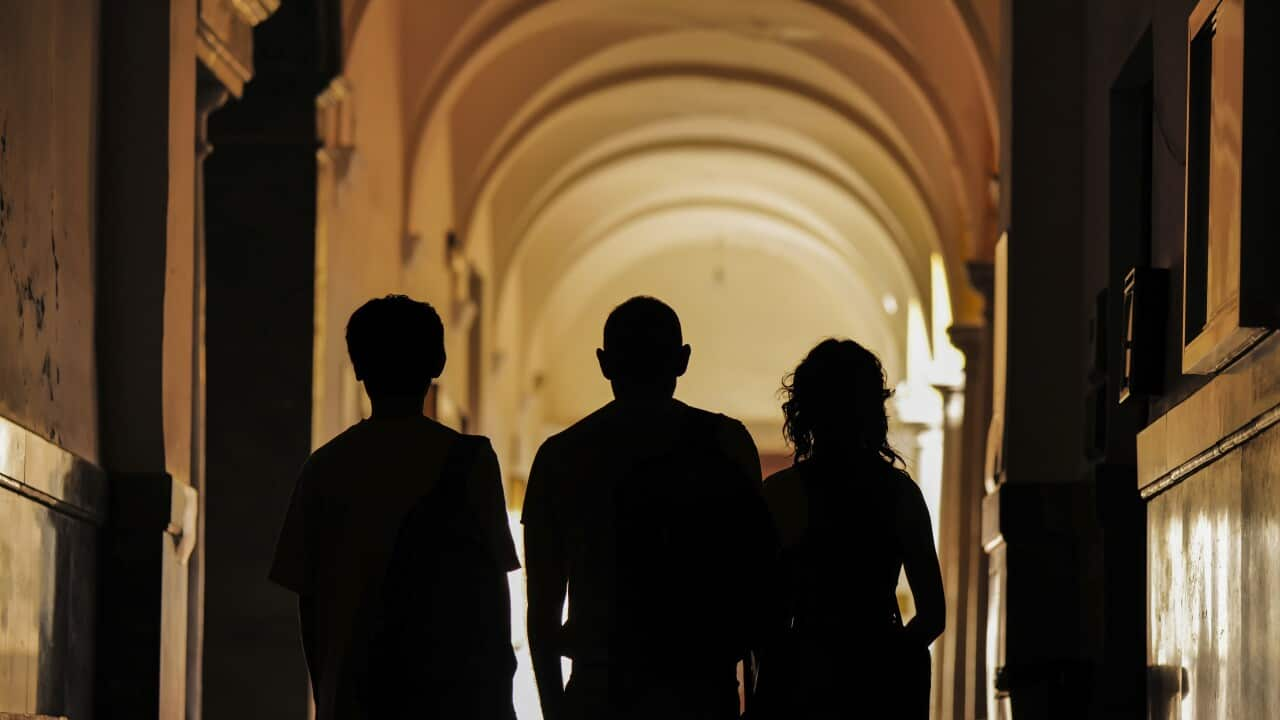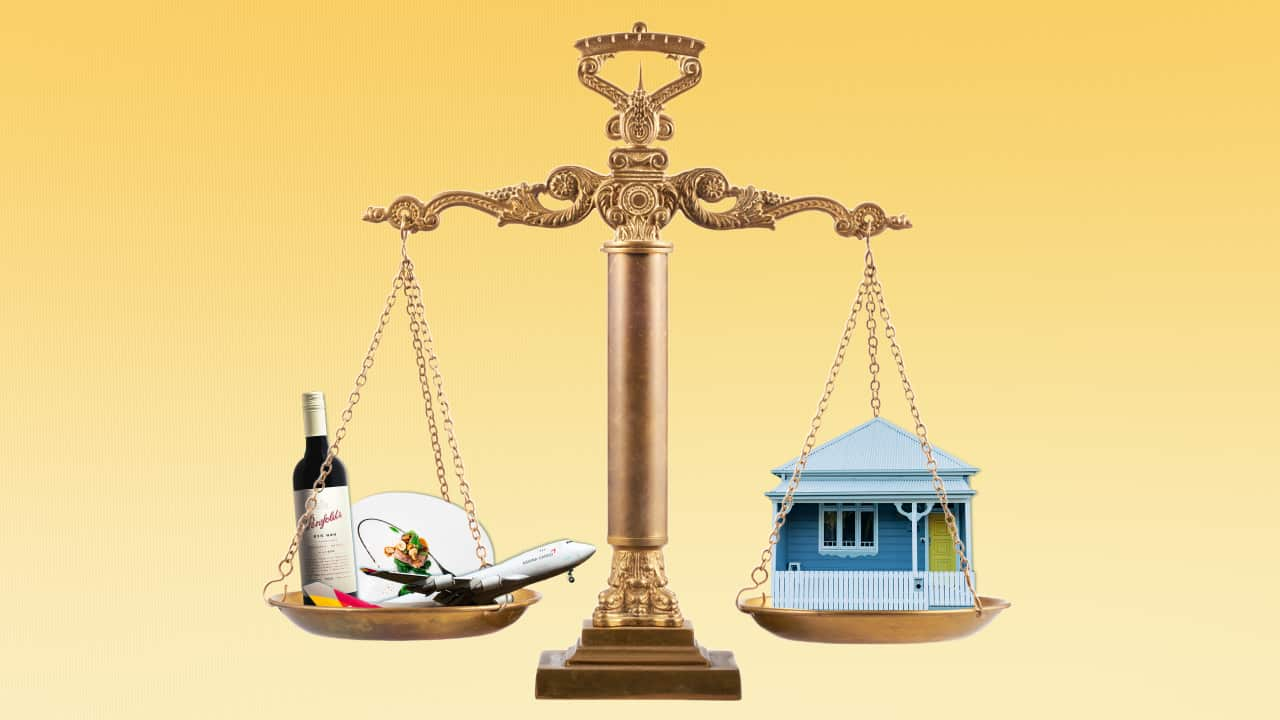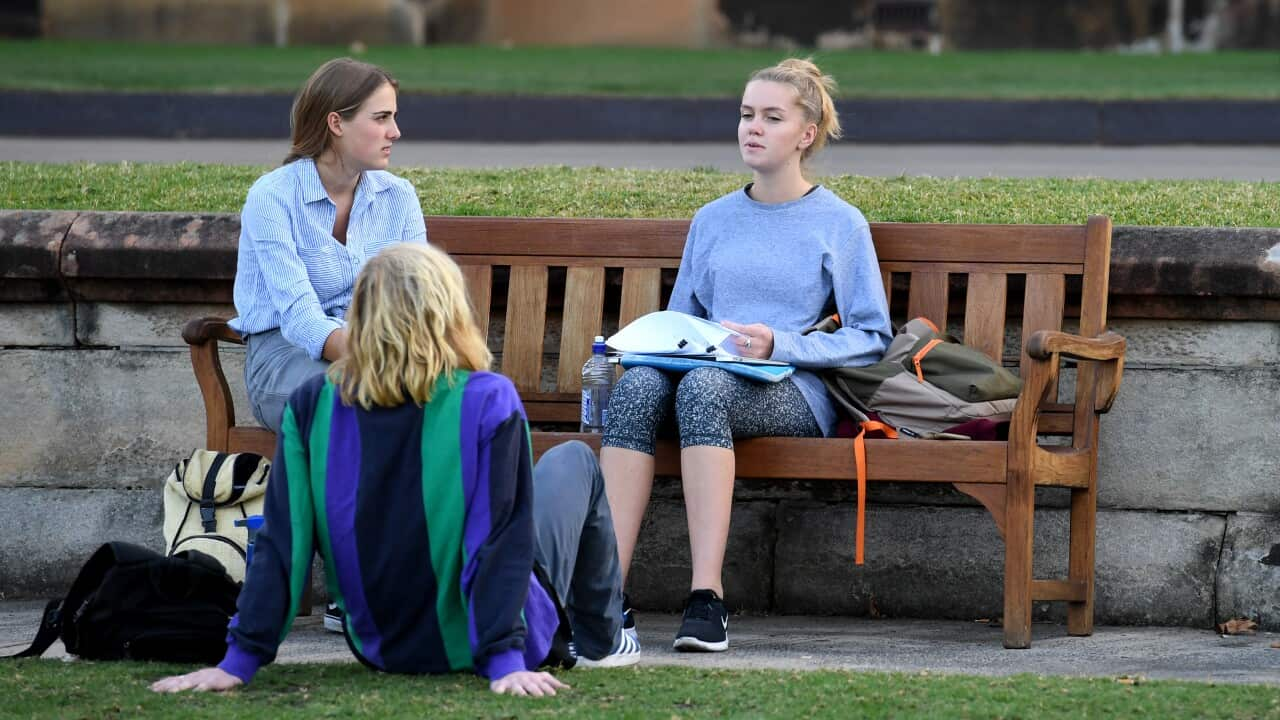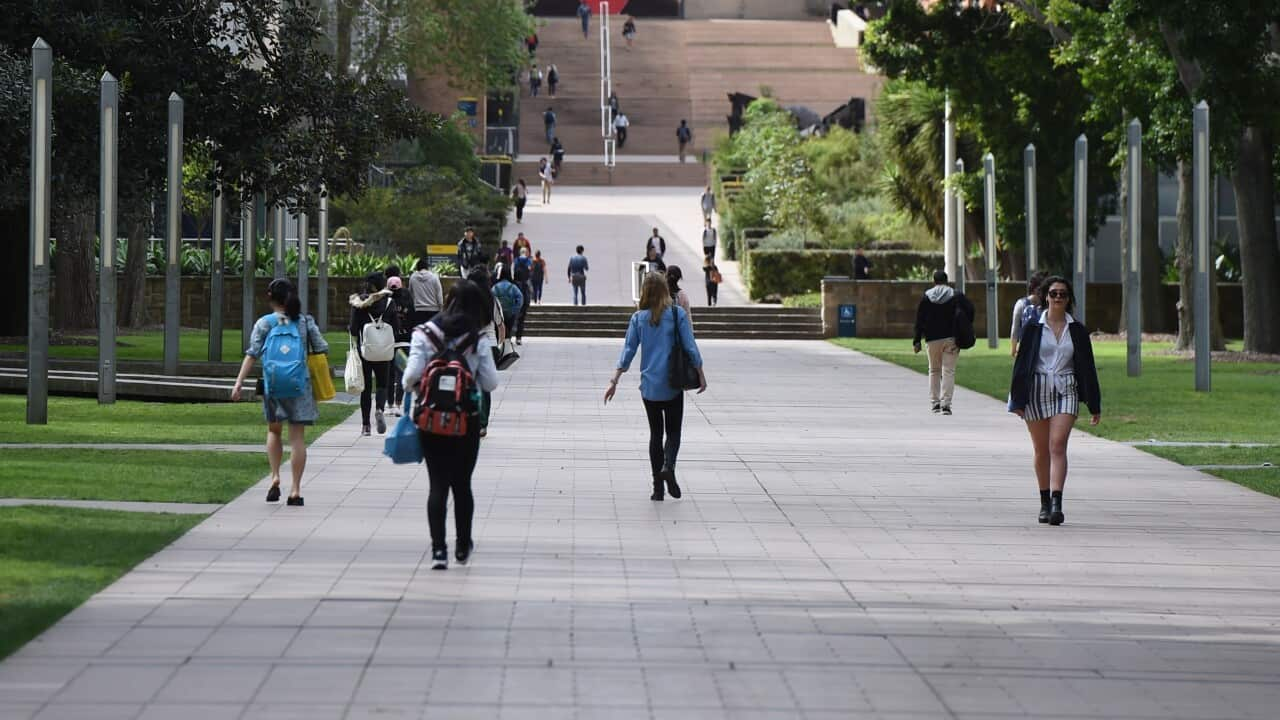Vidushi is one of the 710,893 international students now studying in Australia, but recently has also felt the impact of Australia's housing crisis.
She moved to Adelaide four years ago to study a Bachelor of Information Systems but says the rent for her room in privately run student accommodation became unsustainable.
When she first moved in, she got a deal on the rent and was paying $165 a week. Since then, it has increased to around $300.
“It was almost like double increase in the price,” Vidushi told The Feed.
“So of course, your budgeting system does get affected.”
She decided to move into a sharehouse with some friends.
Australia is in the , with prices in the private rental market increasing in every state. The cost of purpose-built student accommodation, provided by companies including Scape, UniLodge, Iglu and Yugo, has gone up too.
According to a report by BONARD, a consultancy company for the residential real estate market, the average monthly rental for a single studio increased by 7.9 per cent from 2021 to 2022.
All of this comes during an influx of international students in Australia post-COVID. According to the federal international enrolments between January and July reached 833,28 between January and July 2023.

Credit: The Feed/Department of Education
He described privately run purpose-built accommodation like Scape as the “McDonald’s of student housing” because "you know what to expect".
“But it’s very, very expensive.”
He believed the nation's housing crisis has “dented” Australia’s reputation among international students.
Why live in student accommodation?
There are a number of reasons why international students choose this type of accommodation rather than trying to navigate the private rental market.
Yeganeh Soltanpour, president of the Council of International Students Australia (CISA), said student accommodation is a "convenient and safe choice" where international students can meet other new students.
"They're safer, they're convenient, they're often very close to really popular areas that we can go to, like the CBD or our universities as well," she said.
Morris also said one of the big advantages of private accommodation is the security.
“They offer a secure environment where students can be with other students… and they’ll be in a sense looked after,” he said.
Tejas Gandhi moved from India to Melbourne when he was 17. When he first arrived, he rented a studio apartment on his university campus for $275 a week.

Tejas has lived in Australia for four years now. Credit: Supplied
Tejas initially chose to live in private student accommodation because of its convenience and to be around other students.
He has considered moving into a sharehouse.
“I was planning to leave, but then I couldn’t find a decent place where I could have a nice bedroom… and have a decent furnished house,” he said.
Securing a spot in a rental or sharehouse while you're still overseas can be difficult. Private student accommodation is a "known quantity" said Morris.
"A lot of international students are quite young, and of course, if you're looking for accommodation [and] you're based in China or in India or in Pakistan, it's not easy," he said.
However, Morris added that most international students "are still very dependent on the traditional private rental sector" because purpose-built student rooms only account for around 15 to 20 per cent of the available accommodation.
How are rising accommodation costs affecting international students?
“When you see money leaving your account so quickly after coming in, it definitely gets to you,” Tejas said.
He’s also noticed theft in the shared kitchen of his accommodation.
“I’m guessing other people are also getting pressured by the rising cost [and] they’re resorting to stealing,” he said.
Morris says increased student accommodation prices is “part of the general rental crisis”. In general "vacancy rates are incredibly low" and there's little affordable housing.
At the same time, the quantity of private student housing has increased.
“There's a reasonable expansion of purposeful student accommodation, Scape, Iglu, et cetera, and that accommodation is incredibly expensive," Morris said.
According to a spokesperson from private student accommodation provider UniLodge, it does have a portion of its stock dedicated to affordable housing, "which is priced at a discount to market".
How does purpose-built student accommodation compare to the private rental market?
At Iglu accommodation in Chatswood, Sydney, a room in a six-bedroom apartment is currently listed at more than $500 per week. According to a rent statement, The Feed has seen from 2020, a room in the same type of accommodation was $394 three years ago.
The most expensive room available at that property is a studio apartment for $715 per week, which includes the cost of bills like Wi-Fi and air-conditioning.
The cheapest room available at one of Scape’s three Adelaide locations is $259 for a shared bunk bed room, while a twin apartment at another property is $289 a week.
In March this year, , a site where people list rooms available to rent in sharehouses on the private rental market. At the time, the average price for listings in Adelaide was $208 and in Sydney, it was $325.
Scape offers accommodation opposite the University of Adelaide, where rooms currently range from $299 to $579 per week.
The university also has three of its own properties. At its city centre University of Adelaide Village accommodations, options include a room in four four-bedroom apartment or five-bedroom townhouse, sharing a bathroom with one other person. The annual fee for 2024 in these rooms is $17,680, or $340 per week including all utilities.
At another university-run accommodation centre in North Adelaide, rent is $265.
Amenities like air conditioning and heating aren't guaranteed in the private rental market. A March report from tenant organisation Better Renting found renters were putting up with mould and unhealthy temperatures in their homes. It surveyed 77 homes and found temperatures were above safe levels 45 per cent of the time last summer. And this year, we're approaching a hot, dry
The rights of international students in the private, landlord-driven rental market are a concern to the CISA.
"One thing that I would point out with the international student cohort is sometimes they are more vulnerable to [abuse] simply because of the lack of awareness of the pricing or what prices are appropriate, what locations are safe, unsafe, and what the kind of pricing should be based on location as well," Yageneh Soltanpour said.
She believes universities should provide housing education and support for all students, so they're informed on their rights and entitlements.
Scape has properties in Sydney, Adelaide, Melbourne and Brisbane.
CEO Anouk Darling said in a statement that the company focuses on the resident experience, asking: “What support do our residents currently need for their overall well-being, safety, security, experiences, room product, communal spaces, and services”.

Anouk Darling is the CEO of Scape, Australia's largest student accommodation provider. Credit: Supplied
He said Australia's housing supply deficit has led to "incredibly tight rental vacancy rates".
"The absence of purpose-built student accommodation would result in 80,000 additional students vying for homes across Australia's private rental market, driving up rents even further.
"Governments at all levels need to prioritise the delivery of new homes. We need to set clear housing targets, fix broken state planning systems and encourage high-community benefit housing types that suit the needs of everyone – including students, renters and retirees."
How did we get here?
One reason for the expansion of private student accommodation is the fact universities have sold off housing stock - something Alan Morris describes as an “incredibly absurd situation”.
“The capacity to offer affordable housing to international students has really diminished," Morris said.
For example in 2021, UTS sold three accommodation blocks with 428 places to Scape for around $95 million.
At the time, UTS Vice-Chancellor Atilla Brungs said the sale would: "help the university deal with the financial challenges brought about by the global pandemic in a way that doesn’t impact upon our core business of teaching and research".
The selling off of university housing was also criticised by Xavier Dupé, education officer for the National Union of Students (NUS).
He told The Feed universities “treat international students like cash cows”.
“On top of charging them tens of thousands of dollars in fees, they've sold off their student accommodation and left students at the mercy of private providers who charge through the roof.”
The added pressure of reduced work hours
During the pandemic, working hour caps were relaxed and then removed for student visa holders. But on 1 July this year, they were reinstated, with those on student visas now only able to work 48 hours per fortnight while studying.
Tejas works two jobs. He doesn't have any worries about not being able to pay his rent, but says the new working caps “are really hard”.
“Especially if you want to actually have a life outside of paying rent and working, it's not very easy … If you want to go out and eat or just want to have a drink with some friends or basically do any type of activities outside of surviving.”
The government has said the reduction in work hours is so students on visas can focus on their education, while also gaining work experience.
Is there a solution to the high cost of student housing?
Dupé said student housing “shouldn’t be for profit”, and that universities should provide accommodation with rents fixed at $100 per week.
While Alan Morris doesn’t see an end to rising student accommodation prices any time soon, he does think there’s a limit to how high prices will go.
“The purposeful student accommodation is going to continue to increase, but I think they will reach a point where they might start struggling because students just aren't able to afford those,” he said.
For the moment though, students will continue grappling with the cost of studying in Australia.



